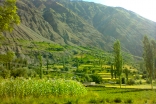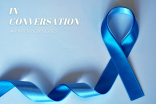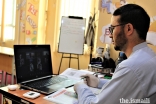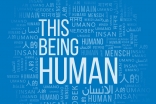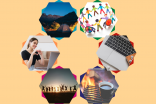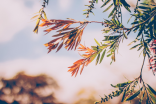Content Tagged with app
Whether through film, design, or other media, the arts allow individuals to express themselves and their communities, and remake the world at large through their work.
The Ismaili is pleased to present a rendition of Durood O Salam, a much-loved composition, originally performed by Kamal Taj, for the occasion of Mawlana Hazar Imam’s visit to the United States Jamat in 1986.
The Covid-19 pandemic has put economies around the world to the test. Unemployment has reached alarming levels, many industries have seen massive declines in revenue, and business models once thought reliable were disrupted. Surviving these circumstances required building new skill sets, adjusting career plans, and revising business strategies at an unprecedented pace. Inspiring stories have emerged of Ismailis who met these challenges with resilience as well as community institutions that stepped up to support the Jamat through times of hardship.
Despite recent advancements in science and technology, there is still much to discover and accomplish to improve lives across the globe. Women and girls continue to play a leading role in this regard, not least via the sciences, while members of the Ismaili community are at the forefront of this field, working to better understand our world and make it a better place for us all.
Sharifullah, of Immit in Ishkoman Valley, Gilgit-Baltistan, believes prosperity lies in saving for future generations. While working as a farmer, he barely earned enough to feed his family. With some assistance, Sharifullah and his family are now on a path to progress.
Due to the harsh climate in Immit, Northern Pakistan, the local soils require labour-intensive work to become suitable for cultivation, and the low income earned from farming leaves no money to save, so Sharifullah began to look elsewhere for his livelihood.
World Cancer Day takes place on 4 February every year, with an aim to save countless preventable deaths by raising awareness and sharing resources relating to cancer. On this day, we bring you an interview with Dr Shama Virani, a scientist with the World Health Organization, who discusses progress, prevention, and how we might take action against the negative effects of cancer.
When the pandemic struck and forced a nation-wide lockdown, it decimated thousands of small businesses across India. Gripped by uncertainty, and burdened with the costs of rent and inventory, many small businesses struggled to survive. As an immediate response to support the Jamat’s financial needs, the Ismailia Co-operative Credit Society Limited, Hyderabad (ICCS), launched a new series of financial products, offering a much-needed financial lifeline to the Jamat during this time.
Many stereotypes exist for the archetypal entrepreneur: that they are charismatic and talented risk-takers, focused only on increasing profits. Yet a new wave of business leaders is emerging, passionate about doing good and improving the world.
Take any highly successful person and chances are that person had a mentor to guide his or her journey, but when Kenyan-born Azan Virji set out to obtain a world-class medical education in the United States, he didn’t know whose path he could follow.
As the global community faced unforeseen challenges due to the Covid-19 pandemic, schools and universities were required to quickly implement remote learning in order to maintain social distancing and other Covid-19 safety protocols.
In light of a change to its terms of service, the popular messaging service WhatsApp lost millions of its users this week, who have migrated to other apps such as Signal and Telegram, both of which claim to offer better privacy. What are the risks involved in using such apps, and how can we mitigate them?
A pioneering new arts and culture podcast launched by the Aga Khan Museum showcases extraordinary stories and people from across the kaleidoscope of Muslim experience.
This week, The Ismaili presents an acoustic rendition of Allahuma Salli Aala, performed by Amisha Lakhani in India. Originally written and composed by Khairunissa and Fez Meghani in the United States, the song was first released during the Golden Jubilee, and has remained popular ever since.
The phrase, Log kya kahenge meaning ‘what will people say,’ highlights a mindset within South Asian communities about the way people act, hold expectations, or even choose to participate in programs. This mindset has also been a contributing roadblock for many people when talking about and seeking out mental health support.
Since the beginning of time, people have handed down knowledge and lessons from one generation to the next in the form of stories. The novelist Haruki Murakami once said that “Stories lie deep in our souls. Stories lie so deep at the bottom of our hearts that they can bring people together at the deepest level.” For one young member of the Jamat in the Far East, continuing this centuries-old tradition is of crucial importance.
The Ismaili is pleased to present a recent rendition of Ali Antar Ma Mara, a well-loved Gujarati geet, made popular at the time of Mawlana Hazar Imam’s Silver Jubilee.
Sensitive to the needs of our young Jamat in a time of uncertainty, and in the absence of regular in-person camp offerings, the virtual Mosaic camp was an example of innovation and dedication from a small group of volunteers in the UK, looking to inspire and educate leaders of the future.
With optimism and hope for a new beginning, and as we all think about our resolutions for the new year, The Ismaili would like to share with you 21 Goals for 2021!
With a nod to each one of our 21 Ismaili Council jurisdictions across the globe, and inspired by our 20 Goals for 2020, we hope we can resolve to accomplish them all together.
Happy New Year!
It is tempting to think that we can just leave 2020 behind and look ahead to a fresh new year. However, this might be short-sighted. The bigger picture suggests that collectively, we have never learned so much in such a short space of time — about the world, about each other, and about ourselves. It would be wise to hold on to these lessons, as we may soon need to put them into action...






